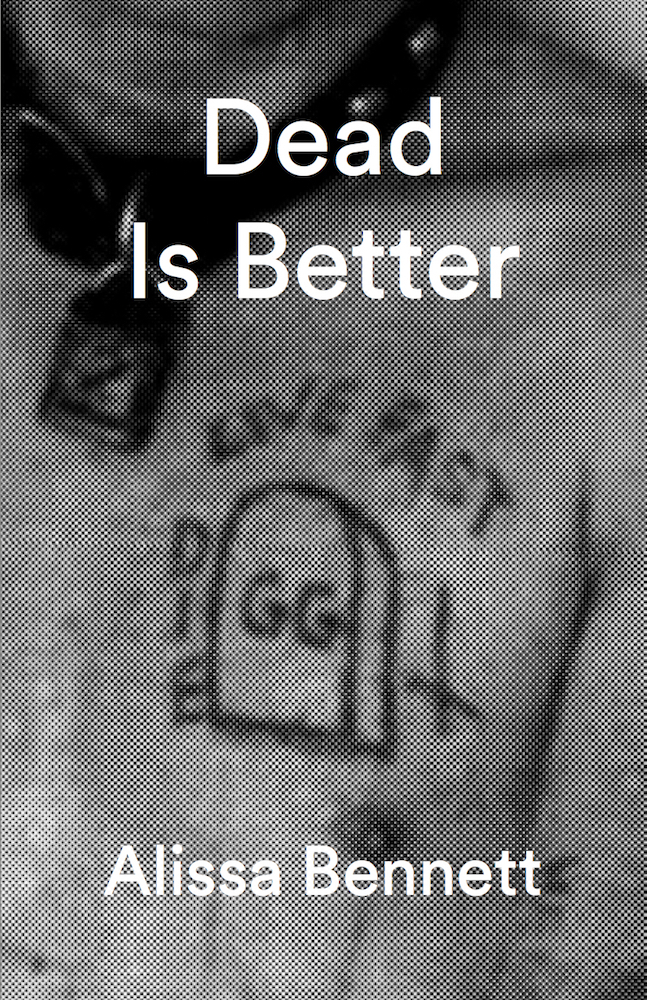Alissa Bennett, Team Gallery director and creator of the zine Dead is Better (and late 90s i-D cover star) isn’t ashamed to admit she’s a little ashamed of her long-time fixation with the down-falls and deaths of famous people — from Brittany Murphy to GG Allen and Kiki Kannibal — or people who became famous due to demise. But the sense of uncouthness that comes with the human inclination towards fandom and morbidity, and Alissa’s ability to explore that while simultaneously empathizing with her subjects and using their stories to excavate her own life, is what make her zines addictive. Just before she heads to the LA Art Book Fair, we speak to her about feeling loss when people we’ve never met die, the sorts of people you meet on forums like findadeath.com, and the celeb whose demise haunts her the most.
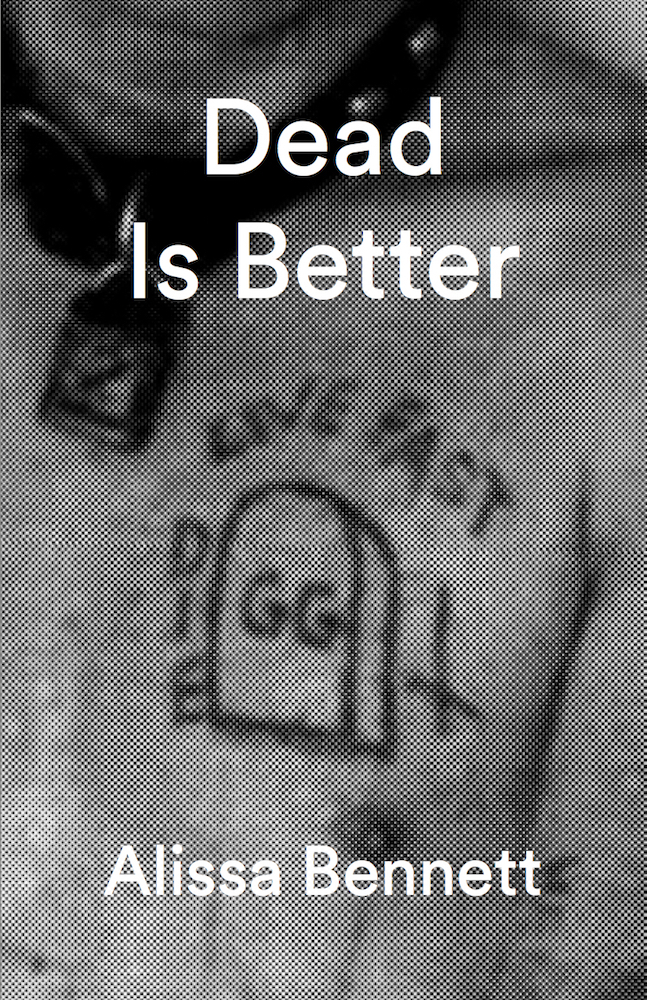
What got you putting these zines together? How long have you been obsessed with celebrity deaths, addictions, and life messes?
Oh, forever. I had a kind of unsupervised childhood where I could watch anything I wanted on TV, could rent any slasher movie that interested me, could read whatever, and my natural inclinations always led me toward mystery, crime news programs, and celebrity death. I guess that when the internet got better after the late 90s, it really exploded the kind of information that you could have access to as a regular, pedestrian person. I got really interested in the fact that a fan could be an expert on the details of their idols’s deaths, that fandom didn’t have to be reserved for the work that a person had done in life. Last winter I did a top 10 celebrity death series on my Instagram, and I by chance ran into Frank Haines as I was leaving a Christmas party. He’s an independent publisher and asked me if I wanted to make a zine for his booth at the LA Art Book Fair. I wrote the first issue in about six weeks.
Do you think it’s weird when people get genuinely upset about a celebrity’s death, considering they don’t really know that person?
I really don’t, actually. I think one of the primary mechanisms of celebrity is that famous people act as mirrors to their fans, like they offer some kind of glimmer of self reflection, which is why we like them in the first place. I think the loss of a celebrity can strike us as being very personal because it is almost a loss of the self. Fandom is such a powerful thing, and that’s definitely part of what really attracts me to these stories. I have always been really interested in the fan boards that pop up after a celebrity dies; it’s kind of beautiful to see this other side of fandom, like this post-mortem information hoarding that inevitably happens.
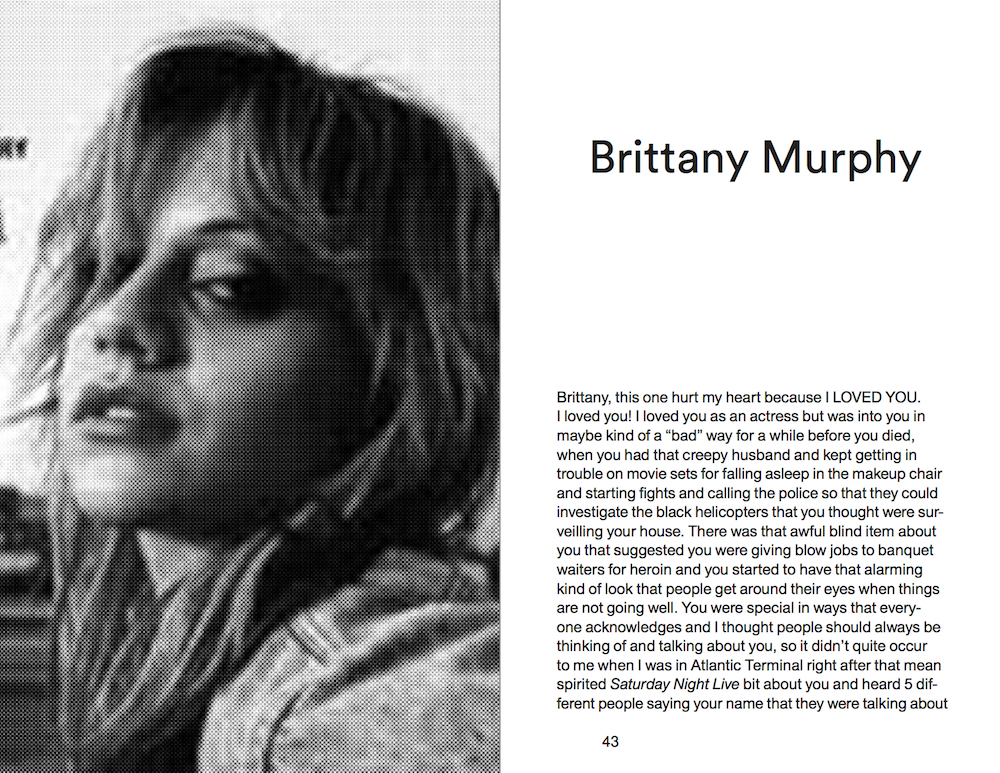
Do you believe in the afterlife? And if so, do you think celebrities go to the same place as us plebs? Apparently even GG Allin believed in some kind of afterlife, I wonder what he had in mind.
I mean, it really seems to painful to think that we don’t at least get to become ghosts or like, semi-sentient light beams or something.
Can you tell me about your “death-obsession pleasure”? Particularly the pleasure part.
I think the pleasure is in the information hoarding, the digging, the feeling that I can at least come close to understanding the details of a stranger’s life. Obviously one of the primary tenets of my zines is that I don’t write about natural deaths; I am always looking for some heartbreak or sadness or confusion or loneliness because those are issues that I relate to. I want to try to understand how a person who seems to at one point have had everything then falls off-track, and I want to use that information to consider the failures in my own life as well.

Do you think celebrities should be afforded privacy when it comes to their deaths? Or is that just as fair game for public consumption as their lives?
I don’t know! I have a hard time approaching this issue through the lens of ethics or morality, because I DO want to know the sordid details, I DO want to read a secret diary or consider the chemicals on a toxicology report, and I think everyone else does too.
When trawling through dead celebrity forums, what have you noticed about the other people hanging out there?
I have to say that what I find really interesting is that it is all kinds of people. The most exciting thing is that you sometimes run across a person who knew the subject in real life and feels confessional — like they need to talk to strangers because there is nowhere else to go with the information. I guess there is a definite “type” who gets really involved in post-mortem gossip, we are always obsessive and nosey.
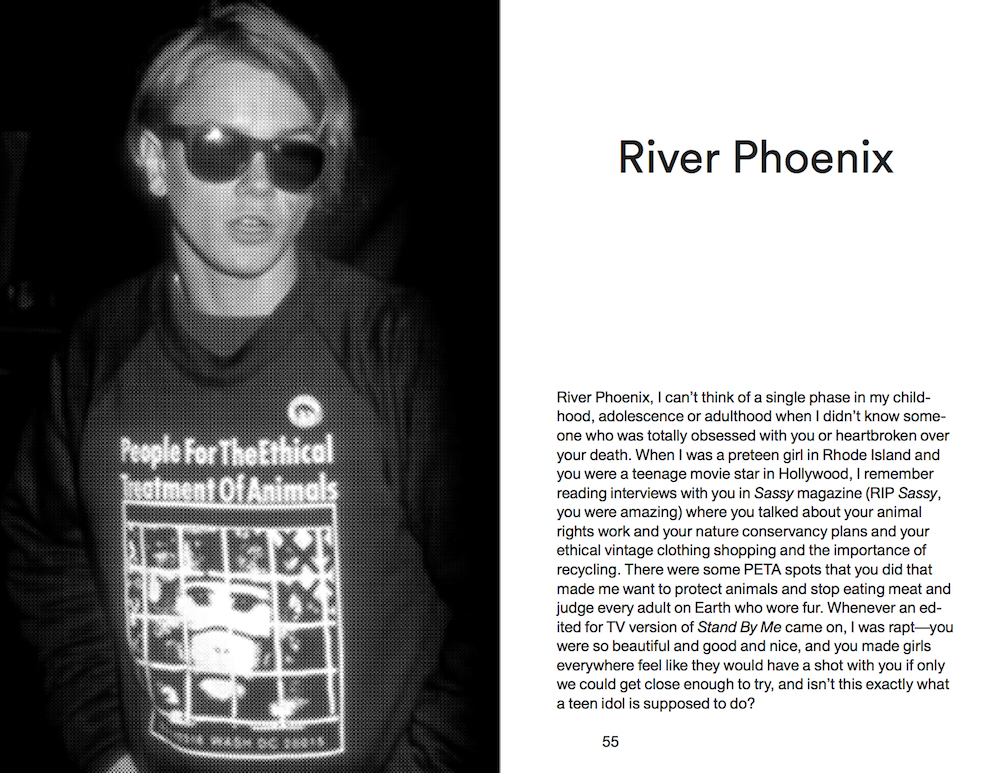
You’re being honest about the rather taboo subjects of our natural human curiosity with morbid subjects, internet trawling, and listening in on wasted neighbors arguing. Have you had any bad reactions? Why do you think it’s meant to be a dirty secret?
I think the fact that I am so honest about my own shame can help to ameliorate the bad reactions that people might have towards the work if I was just writing sensationalism. I always feel like these texts are really about me, like I have to use the signage of a famous person in order to talk about the things that I have done or the things that I have been humiliated by. In a way, bringing myself into the narrative and being very open when I kind of say: “I am going to tell you something about myself that I don’t want anyone to know” sort of levels the hierarchy. Like, I am not just talking about Anna Nicole Smith’s mistakes, I am talking about mine as well. I have always been a naturally embarrassed and secretive and scopophilic person, and I figure that if I am going to look into someone else’s drawers, I have to be willing to open mine as well.
Which death mystery haunts you the most?
That’s a really hard question — I definitely have certain people who I will never quite get past, people who there will never be enough information on. For some reason, I am really obsessed with Layne Staley’s death, even though I never liked Alice in Chains and always thought they were a kind of shitty band. I can’t quite explain it to you because I don’t know the reasons myself.
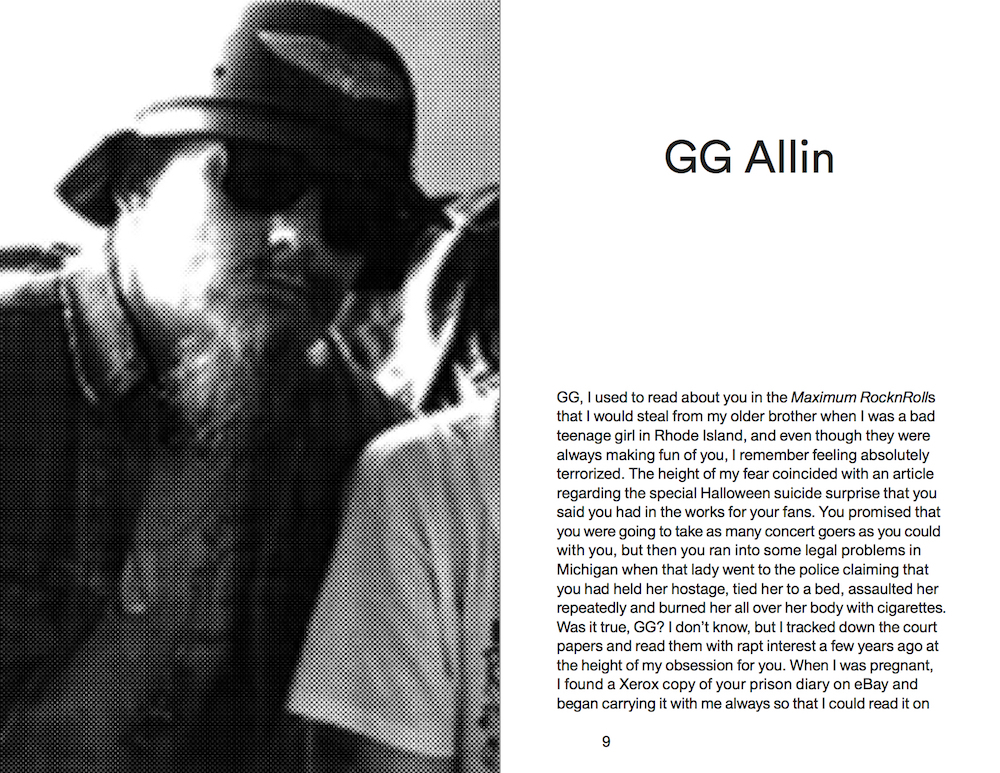
Why these particular celebrities? What draws you to a certain famous person’s tragedy?
It definitely goes back to what I was saying before about fandom — there is always some element of any of the people I choose to write about that I relate very deeply to. Sometimes it happens in really unexpected places, like there is an episode of Intervention that I just wrote about that chronicles the addiction of a guy named John T, who is suffering some delusion that he is a famous techno DJ. I had watched this episode over and over for years before I decided to write about it to try to figure out what it was that drew me to him, and I guess at the end I sort of understood the tragedy of just wanting very badly to be special. It’s such a small thing, but it just touches my heart in a crazily profound way. Anyone that I write about has to do the same type of thing; above all else, I want to feel empathy. Empathy is totally narcotic for me.
I like how you often write as if you’re talking directly to the dearly departed. What’s that about?
It’s to say to whoever the subject is that this text isn’t about you, it’s about us. Like, I am going to be in this together with you.
What’s coming up next? I hope you’re going to be writing more stuff like this.
Oh yeah, for sure. I just finished issue 3, so now I kind of start making lists of things that I am interested in writing about. I watch tons of TV, I devote myself to the internet, and then just kind of see what naturally surfaces.
‘Dead is Better’ is available from Printed Matter (it’s currently out of stock but will back after the LA Art Book Fair) and here. Issue 3 is out soon.
Credits
Text Clementine de Pressigny
Images courtesy of Alissa Bennett
